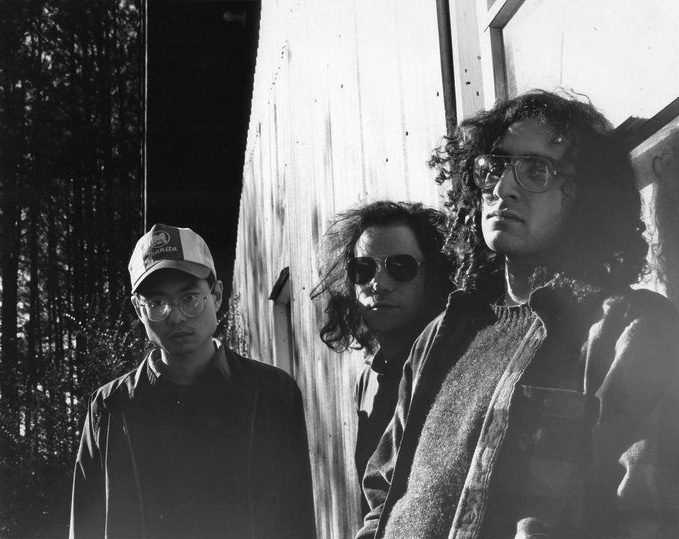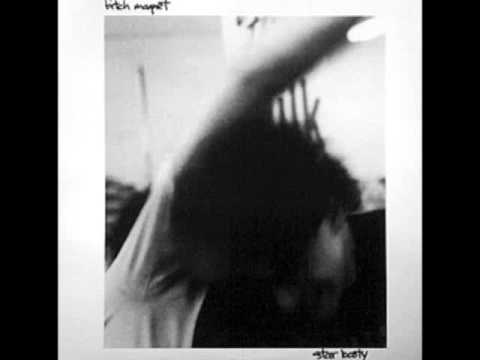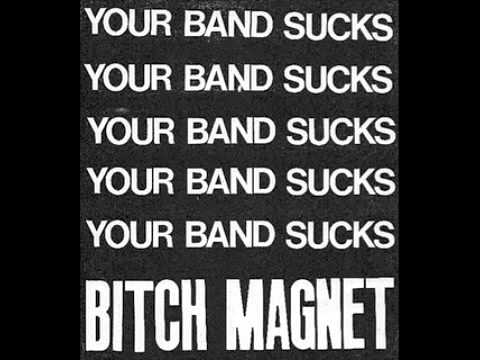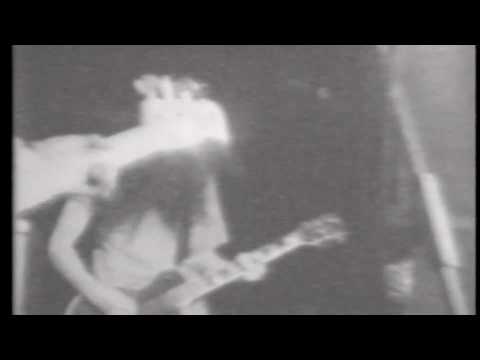Oberlin’s a town of less than ten thousand people. It was created by two Presbyterian ministers in the early 1800s as a model Christian community and school, a place that would isolate itself from the moral decay the ministers saw as endemic in the settlers of the American West. Kneeling to pray on their journey to seek a suitable settlement, a hunter saw a family of bears climb down from a nearby tree. The bears saw the two god-botherers, but turned away without harming them. On hearing this story from the hunter, the two ministers took it to be a sign from God that they had selected the right place for their community and school.
Tuition at the fledgling Oberlin college was free, but students were expected to contribute by helping to build and sustain the community. This attracted the smart and poor. The resultant motto “Learning And Labour” remains to this day, and Oberlin College, now a private liberal arts college, remains the sole locus of interest in the otherwise moribund corner of Ohio it inhabits. A centre for Abolitionist groups, it was the first American Higher-Learning institution to regularly admit female and black students and it’s famous for its Oberlin Conservatory of Music, the oldest continuously operating conservatory in the country. Tellingly though, none of the interesting music that came out of Oberlin alumni in the late 80s and early 90s was made by students of the Conservatory. Just those freaks and geeks bumming around in the main college.
On a dark and stormy night in 2011, three of those freaks and geeks are at the Lexington in London. One’s called Jon Fine. He was hairy, he’s now bald, wears elastic to keep his specs on his sweaty head, and looks uncannily like Vector out of Despicable Me. One’s called Orestes Dellatore. He was buff. He’s now mountainous, and looks uncannily like Joe Mama Bess from Spinal Tap. One was called Sooyoung Park. He hasn’t changed at all. None of them are the stars of this story cos if there are stars in this story they last anything from two to nine minutes and they’re songs, not people. These three middle-aged men are in a band called Bitch Magnet that haven’t played together for 20 years. Back in the day, they created three records, 1988’s Star Booty, 1989’s Umber and 1990’s Ben Hur that changed perceptions of what American rock music could do in the 90s, that set down a sound so unique it’s been inevitably dragged in as an influence on a whole host of acolytes since, none of whom quite matched the unique oddity, the supremely pop lack-of-compromise in Bitch Magnets music. Far more than the oft-trumpeted Slint, Bitch Magnet were there at this new sound earlier and further than anyone else but perhaps because of the threesome’s unassuming nature they’ve kind of been forgotten about in the two decades since.
Not by anyone in the Lexington tonight. Anticipation seething in the crush. Bizarrely a ton of heads from my home town which startles me, reminding me how many musicians I knew and know personally who just worshipped the ground BM walked on, had their whole way of playing and writing music utterly revolutionised by them. Broken hearted they were 20 years ago when BM pulled out of their sole Midlands show at Edwards. None of them have forgotten. All of them are here tonight, it’s like a school reunion. Oh shit. They’re on. No idea what I’m about to see. No idea. This is what I see.
They’re astonishing. I mean, full-bloodedly, holding your friend with glee in your heart, jaw sunk floorwards in gaping wonder astonishing. Incredibly gratifying to see a band who seemed to come together and fall apart by accident, bereft of incident bar the music, suddenly turn a wet Monday night in The Smoke 20 years later into one of the greatest nights of the year. Afterwards I ask them – what did YOU expect?
“Not that” says Jon, trembling. “That was amazing. We haven’t known what to expect from any of these gigs. We’re so touched, so moved that people remember us, let alone remember us so fondly. Bitch Magnet were the first band I was ever in…” He can’t go on. Which for a gobshite like Jon means it really did mean a lot.
Sooyoung, quiet, considered to the point of near-silence: “I’ve been totally surprised at the reaction at these gigs. We weren’t a very popular band when we were active. I don’t know what’s happened in the 20 years since.”
Orestes: “No idea beforehand what was going to happen. I’ve been detached from music altogether for nearly 20 years now. It floored me, that crowd reaction. Totally floored me.”
Understandable though given what BM meant. They were the first guitar band of the late 80s and early 90s to make a clean break with post-hardcore and make something entirely new in American music. What was so compelling about Bitch Magnet was not the noise they made. In comparison to forebears like Sonic Youth, Butthole Surfers, Dinosaur Jr and Big Black these weren’t songs smothered in feedback, lost in sudden deluges of drone – Bitch Magnet’s guitars were clear, precise, clean, distortion that never overwhelmed but seemed to just add to the stacked up sense of heard and unheard melody. It was always clear that you were hearing that most beautiful of band-formations, the trio, but a trio in which everyone was doing something you didn’t initially expect, something you then came to understand and be addicted to. Sooyoung played the bass less as pure rhythmic undertow than as algae-like web, the meshed heart and soul of BM’s sound, pregnant with suggestion and stealth. Jon Fine lashed down chords you couldn’t figure out because they weren’t chords, they were needling one-string melodies, open-stringed refractions of light, sudden smears of pure shadow, endless tunnels of sound walled with writhing electric life, buzzing, tuneless, pure energy, shape, trajectory. Over and under all of this was Orestes’ drums, solid and gaseous as a planet, heavy as a star, diffuse as that star’s implosion. Put it all together and you still don’t get Bitch Magnet. The songs, these unique songs that Sooyoung wrote, magically created an otherness to BM’s pop, a towering centre amidst the alchemy thrown around it, more than the sum, beyond its creators.
What bought you to Oberlin? What bought you together?
Sooyoung: “I was a slightly nerdy Asian kid who’d already been playing music at school. New-Wave covers that I lost interest in by the time I got to Oberlin. In high school I saw the Canadian band DOA play an all-ages show at a makeshift venue in front of about 50 people. It was the first time I’d seen a real touring band up close and it just blew me away. At that point I’d already been playing with some friends in a band but seeing DOA made me realize that making records and touring wasn’t so far out of reach, even for an awkward, geeky kid like me.”
Orestes: “I’d like to stress that Bitch Magnet were never a gang. Never wanted to be, never could be. We come from totally different places. I came from a really musical family. My dad was a congo player, had a house full of drums, a lot of musicians coming through the house at all times and all hours. I grew up playing the Brazilian music he played, so there’s a lot of jazz, that Latin lightness-of-touch, that came into my rock drumming as well.”
Jon: “That’s why to this day I say there’s no drummer like Orestes. Just inspirational to play with him and watch him and learn to this day. Always surprising. An ox with a totally instinctive flow. He has depth. Me, I’m shallow. Itchy underfucked kid from suburban New Jersey growing up in the late 70s and early 80s. At that time the crucial thing is, even if you read about punk and the Pistols and the New York Dolls you couldn’t FIND anything by them. What you got to hear was brutally pared down to what you could find, what you could read about in Rolling Stone. You become obsessed with Elton John, and because you’re from New Jersey, Springsteen. You become a pious little fuck about music because you only own about 20 records. You half-hear about hardcore because you were born too late – you build up ideas about music from snatches, record covers, parts of songs, lines of lyrics. As an adolescent drama-queen you realise there’s something very seductive to you about Prince. Subgenres that become so important later, that you end up resisting when you’re in bands yourself, are hard to understand because to you, as a kid, it’s just ALL music. Metal, pop, hardcore, no lines.”
Do you think that temporal distance from punk eventually helped you all make something not hampered by punk strictures and confines?
Sooyoung: “Looking back on it now I guess there was a lack of direction for a lot of bands that missed out on the original punk rock movement but were still inspired in some way by it. Perhaps that lack of direction was a good thing.”
http://www.oberlin.edu/external/EOG/OYTT-images/11OberlinCitySign.jpeg
What were you all studying at Oberlin?
Orestes: “To this day I can’t tell you what Jon & Sooyoung were doing – I think Jon might’ve been a history major, and Sooyoung a chemist who changed to fine-art but I could be wrong. What I do remember is that none of the interesting music happening in Oberlin was coming from the music college.”
Sooyoung: “The geographic isolation of Oberlin and the consequent lack of access to alcohol were definitely factors in bringing Bitch Magnet together. My memory’s a little hazy but I think Jon and I met through working at WOBC, the college radio station. I was a maths major, believe it or not. We come from very different musical backgrounds so it’s kind of a fluke we ever ended up in a band together. What drew me to Jon and Orestes was that they both seemed more into playing music than just about anything else, which I think trumps skill level or musical compatibility.”
Jon: “I remember seeing Sooyoung walking across campus looking unlike anyone else there, carrying a copy of Husker Du’s LandSpeedRecord and thinking, he’s a guy I should talk to. Oberlin was a diverse place. We were all involved in what you might call a little post-punk underground between 85 and 89 but that label doesn’t really capture the much broader identity you felt. Diversity always seems to be most present the first time around and then as a culture gets repackaged it all narrows down… but the main thing we ALL had to do at Oberlin was FORM OUR OWN ENTERTAINMENT.”
Orestes: “For 40 miles around in ever direction from Oberlin was nothing but corn, and cold.”
Jon: “There was no town or city nearby, no scene to get plugged into. The isolation of the place really worked in getting people involved in MAKING music who otherwise, elsewhere, would’ve just been spectators. This wasn’t NYU or UCLA, there weren’t clubs nearby or any bands coming to play from out of town. Every other college I’d had experience of had a ton of bands playing the same shitty covers every night. Oberlin had a ton of bands playing their own songs and that seemed really unique to Oberlin.”
Orestes: “Intellectually Oberlin was very intense. In that kind of intense, isolated environment radically different people would be thrown together. Each of us as individuals could have been ‘satisfied’ adults. But together we felt gears shifting, turning points coming.”
Jon: “Me and Sooyoung started playing together just in our dorm room with hippy room-mate drummers whose tastes we hated but had to tolerate. Orestes was playing in an Oberlin campus band called Pay The Man that were just amazing. I mean, you grow up thinking you have to be Bruce Springsteen to be in a band, then you think maybe if you’re lucky you could be in a band like The Replacements or Husker Du or Meat Puppets but then you saw Pay The Man, playing someone’s bedroom or common-room and you’d really think – I could do this. They were amazing. We had to get Orestes.”
They got him in Spring 87.
Jon: “We just grabbed him and he was into it and almost immediately it got way better. Then that summer changed everything. Orestes was going to be in Atlanta. Me and Sooyoung had nothing else to do, and no money, so we followed him. Sooyoung’s songwriting seemed to take a quantum leap that summer. He started writing the songs that would end up on ‘Star Booty’. ‘Carnation’, ‘Circle K’, ‘Canteloupe’…“
Sooyoung: “The crucial thing was we practised and rehearsed an insane amount in Atlanta cos we had nothing else to do and that’s when we started finding out what Bitch Magnet was.”
Orestes: “Things started rolling. Sooyoung started writing these incredible songs and we finally found what it was we were doing – EVERYONE contributed, that was the thing. By living in a different way than we were used to, basically playing incessantly together, it really united us musically.”
Jon: “And we’re playing shows, to nobody. Shows that were public rehearsals. All of it is tightening up what Bitch Magnet can be. Whether anyone watched us was of total irrelevance to us.”
Sooyoung: “I never really thought we’d be a career band, which is an attitude I think a lot of other bands at the time shared. We were just excited to be playing, recording, and touring. Even practice was always fun.”
Bitch Magnet came back to Oberlin to finally record the new sound they’d been creating in the autumn and winter of 87. What they created was ‘Star Booty’, one of the wrongest-sounding, most intriguing records to come out of America in the late 80s.
Jon: “We’re hearing things on college radio that just make us think – we wanna make records. ‘Star Booty’ is an abomination, an abortion of a record. We were all totally ok with being in a band that sounded that shitty.”
Quietly slipping out on Communion Records (who also bought out records by Walking Seeds & curiously, The Shamen) in 88, ‘Star Booty”s dubious production accentuates beautifully the strange turn Sooyoung’s songwriting had taken.
Jon: “Even despite the terrible recording conditions there’s something inarguable about it. The volume. The drums. The pop streak. Orestes keeping everything together. Albini helped us out by remixing it – the original recordings are so bad we’re not letting anyone hear them ever. There’s a conservatory at Oberlin, they had an 8-track recording studio – the recordings were incredibly fucked up and strange and botched and only arrived at through immense effort. We all have fondness for it but god . . . it’s a strange sounding record cos we basically didn’t know what we were doing and we recorded it a room not set up to record a loud rock band.”
Before leaving for Atlanta the band had sent Albini a demo. Albini stepped in when ‘Star Booty’ needed rescuing.
Jon: “And it needed rescuing, we’d fucked up all the levels, recorded it as poorly as possible, not deliberately but through sheer ineptitude.”
Albini’s corrections couldn’t entirely erase the sheer dank strangeness of ‘Star Booty’. Though the sleeve gave homage to their hardcore influences and plied the kind of dark-humour that drew Big Black comparisons, the sound of the record itself was seethingly sealed-in on itself, a criss-crosss tangle of surge and drift covered in murk and foliage and mystery, Sooyoung’s lyrics only lifting their downered murmur above the wreckage in piercing moments of lucid, half-dead doom. Unbelievably it started finding a small but rabid audience.
Jon: “It was all tiny connections, a writer here, a distributor there but we made a few thousand copies and sold them all. To us that was amazing.”
Even the most perverse BM fan wouldn’t call ‘Star Booty’ their first masterpiece. That’d come with its follow up, 89’s stunning Umber. Before they could even make it though, a small piece of business had to occur. Jon had to be fired.
Jon: “To me, being in this band, knowing what we were onto in 1988, the songs we were making, it was great, heady stuff. Even if we were still playing to an average of 20 people a night. Everything very ad-hoc, no business plan and it was always like that. Odd people saying they loved us, putting out records out, like Bob Stanley.”
Bob Stanley?
Jon: “Yeah, he loved us, put us up at his place when we toured the UK. All our gear got stolen on that tour. [BM played a show where Sooyoung had to sit down cos the guitar he ended up borrowing had no strap]. But we didn’t care. Bob took two songs off us and put them out on his Caff label in 1991. Told us he was starting a band called Saint Etienne which we didn’t believe. And we heard them eventually – a bit different to us!”
In Europe BM were being hailed by the likes of Melody Maker as "the most incandescent pop band of the year" but in the US Jon’s difference to his band mates was causing problems.
Jon: “We had studio time in January with Albini but Orestes had a death in the family so a little band called Slint got that time instead, recording that first 10” that came out on Touch & Go. We were friends with an odd cast of bands – Urge Overkill, Bastro, Slint! So we’re hanging around playing shows waiting to record and Sooyoung calls me and says, ‘We want you to leave the band.’ In retrospect I can totally understand it. I have always been a really hopped-up angry aggressive assholish person. Very upfront, where Sooyong & Orestes were way quieter. And I was oblivious, cos I was an asshole, to the tensions that were building. Eventually I got too unbearable, and they snapped.”
Sooyoung: “Yeah, ‘pretty unbearable’ is how I’d describe Jon. We needed a break to sort things out.”
Orestes: “Jon completely drove me fucking crazy. Not musically but personality-wise. He just couldn’t chill the fuck out. Got on my fuckin’ nerves. When you’re 18, 19 years old, you don’t know what the fuck you’re doing, you don’t realise sometimes that music has to be a collaboration between people, that Bitch Magnet as a band didn’t need someone thinking they were the driving force and acting like a rock star. Me and Sooyoung had had enough.”
Jon: “So we lost that studio time but I knew we had great songs and we decided to at least record Umber with me involved. David Galt, an old friend of Orestes from Oberlin came on board as second guitarist. We played for six to eight hours a day that summer and we made Umber.”
Umber was the lift-off point for BM’s music. To this day it sounds unlike anything else, an amazing trick to pull when so much music since has tried so hard to sound like it. Pointing at Bitch Magnet’s music you can pick out details, say who does what, but listening to it you can hear something more, the massive entirely new emergence of something beyond craft, technique or creativity – nothing less than a new end-of-days vision of the wall rock must crash against, the new broken bruised forms it could take on. Unique playing within unique structures – Bitch Magnet’s music rewrote your expectations, smeared the rules of verse-chorus into a succession of devastating moments and retreats.
Orestes: “You can tell, on Umber that we’ve been in the van, we’ve been playing a lot. It’s only then that you can start figuring out what you SHOULDN’T be playing, when you should keep quiet. Umber has way more space to it than ‘Star Booty’ and so the songs come across stronger.”
Jon: “We could tell, on things like ‘Joan Of Arc’, ‘Douglas Leader’, ‘Navajo Ace’, we were doing something new, something to this day that I’m really happy to have been part of. Looking back, the six month delay on Umber really made us hone those songs, and gave us the opportunity to work out the musical complexities you can hear on that record, all the different guitar parts going into it. That time together is what you can hear. That complexity is what we had to recover recently when rehearsing these songs again. Very intense getting the muscle-memory back, cos we wanted to be as good as we were if not better.”
Orestes: “We were never a jam band. I can’t stand craft for craft’s sake. We were kids setting out our measure of lemonade on our little stand. There was intent behind the music on Umber, not just chaos, it was a deliberate attempt on all of our parts to put our feelings on record, to give them some form, and it remains something I’m so proud of.”
Weird how, even talking now to Bitch Magnet, information is scant, much is still left to the imagination. In 89, they didn’t say much to the press. In 2012, I still get no closer to the mystery at the heart of BM, still can’t get more from them than I remember reading 20 years ago, because they don’t have much to say beyond, ‘We got together and made this.’ The danger with any band who remain less than verbose about what they do is the opportunity it leaves open for people to drag the one-off into being part of a ‘legacy’. A few years after Umber came out, the kind of music it influenced started getting called ‘math-rock’. Implying it was for spods, and was about set-squares and protraction. There is geometry in BM’s music, but there’s elliptic curves as well, unproven conjectures – if there’s a sense in their dynamics of collosal structures slotting into place it’s only ever to give a cubist sense of movement from that shape-shifting, a movement in which Sooyoung’s vocals were crucial in their lack of presence, the ghostly way he wove his voice around words you only caught traces and hints of. If rock had tended to put the voice in a strident place of control and centrality, Bitch Magnet’s music seemed to say the voice was crushed under the bigger things happening behind it, whether political, natural or emotional. It was an American music utterly bereft of self-pity or drama and a record that didn’t seem to come from anywhere, city or sticks, that had been represented before. That instant connection those that were exposed to BM felt about this music that rocked so hard, but that steadfastly refused to in any way be rock & roll, meant that for many, the internal coherence and logic of their alternate musical universe became a whole new way of writing and playing. Later, the sounds you hear on Umber would become the lexicon of a dull kind of loud/quiet pootling called post-rock, but in 89 it was the kind of total whole in-from-nowhere experience that was both massively inspirational and impossible to repeat.
For eight months after Umber was released Bitch Magnet toured without Jon, recruiting Jon Grubbs from Squirrelbait into the line up to play Jon’s guitar lines. By the time the band re-convened to make Ben Hur, it was clear that the end was nigh, and that this next record would be the last.
Sooyoung: “I felt the band had run its course by 1990. In retrospect we could’ve stayed together.”
Jon: “We split after a horrible hateful tour without Orestes, we kept playing music in different bands but I started noticing something creepy. It just seemed that most of the bands I saw or played shows with were all made in the same factory. Stripey jumpers. Bowl haircuts. Shit like Tsunami. Pretend music, like all you had to do was outfit yourself in the past.
Orestes: “When we played it had that freak show quality, not because we looked particularly strange but precisely because we didn’t. What happened on stage, between us, that was freakish. That was all that really mattered.”
Sooyoung: “Seam allowed me to go into the kind of music I wanted to make after Bitch Magnet split. After Seam I entirely disconnected myself from music. Until about a month ago I hadn’t picked up a bass for over 17 years. That’s why this still . . . feels weird.”
Umber & Ben Hur suggested so many new routes for American rock in the 90s it’s startling how swiftly BM were moving, how everything they did seemed to open up the novel and unexplored. Bitch Magnet flared and died so quickly. Two records in a year and then a final split nearly un-noticed in the year before Nevermind.
Jon: “I remember the first time I heard ‘Valmead’ that in the time I’d been away from the band some amazing songs had been written. I’m half happy with Ben Hur. But I’m happier with parts of that record than I am with anything else we’ve done.”
Orestes: “That album’s as close to perfection as we got. As close to the music as we ever got. ‘Dragoon’, ‘Mesentery’, man, we said exactly and clearly what it was we had to say.”
Again – you have to force yourself to recall that to Bitch Magnet they were just making the best record they could from what they had, not making any founding statement of future as-yet-unborn and unnamed genres. If you’re into joining dots pretty much most of the great 90s rock music I’ll be talking about in A New Nineties is prefigured, given life, by Ben Hurr. If you can’t turn your cross-referencing mind off you can hear pre-emptive ghosts of the (hate this term) slowcore of Codeine, the broken blues of Come, the ambient guitar-drift of Labradford, the grind and glam of Chavez & Shudder To Think, the jazzed-out menace of Jessamine, but already this feels wrong, reductive. The most hardcore thing about Bitch Magnet was the unblinking uncompromising way they insisted upon sucking up all that they loved and shooting it out in their own way, their own voice. Nine minute songs, vocals almost getting pushed into non-existence, Sooyoung the eerily calm centre, songs made of bass, songs made of a supreme awareness of the right moment, the moment to detonate, the moment to put those explosions in reverse, the hooks. If latter copyists would mistakenly think that this was all about playing loud then quiet, mistook BM’s moments of most holy crunch for aggression or hostility, they were reading this music wrong, hearing it wrong. Because what emerges most surely from Ben Hur is love, for each other even as Sooyoung’s instincts are pushing him in the more pop-direction of Seam, even as Dellatorre is quitting the band, even as Fine is figuring out where he goes next. For one last glorious half-hour Ben Hur utterly eclipses not only BM’s previous work but also many of the influences the band had been so absorbed in. When Steve Albini reviewed Spiderland in Melody Maker he said: “Only two other bands have meant as much to me as Slint in the past few years”. One of them was Jesus Lizard. I’m convinced the other was Bitch Magnet. HAD TO BE.
With American rock about to publicly ignore the ideas BM were playing with in favour of more traditional retreads of the past, BM split, silently, isolated, stranded in a 90s US rock scene more prone to fear than fearlessness. They’d made three albums that tore the 90s a whole new escape route. But being in the band was becoming intolerable because the three personalities involved were too hungry to stay, getting too fractious to bite their lips. As the 90s began Bitch Magnet simply… dissappeared.
Something truly special occurs on the Lexington stage what-feels-like-a-lifetime later, something beyond mere re-animation or nostalgia. As ever with BM it’s murderously hard to put a finger on. Jon moves the most, Sooyoung stays still, smiles. Orestes plays an absolute motherfuckin’ blinder. Nobody is in weird tunings. Nobody is using strange complex equipment. Jon & Sooyoung have amps and distort pedals and that’s it. No pyro, no light show but the most astonishing sensory journey a band’s taken me on all year. What I expected to be thinking was "Christ this sounds like…" and be thinking of all the bands who in the 90s went on to explore (and eventually exploit) Bitch Mag’s music. But what triumphantly got reasserted was BM’s unrepeatability, the way that ONLY these three people making something together, had any business revisiting. Cos every time they play it, it comes alive again, as fully-formed a blast of visionary curiosity and wonderment as ever.
Sooyoung: “Learning how to play the songs again was one thing. Reconnecting with the emotions of the songs was another. It all still feels new.”
Jon: “I think we’d all thought about whether Bitch Magnet was never gonna happen again. Wondered if anyone would care. When Ian from Battles asked us to play All Tomorrow’s Parties we suddenly had a reason and a deadline to work to. Logistically it’s been tough, we currently live in three different countries – I’m in New York, Orestes is in Canada in Calgary, and Sooyoung is in Singapore. But it took about one rehearsal and it all clicked. It was wonderful. That first moment when we were all in the same room together again, it was so moving. All of us, I think, were sadder about what happened than we ever let on. To be able to have a second chance to play these songs again… it’s made even the wait worth it. Nothing I’ve done since Bitch Magnet has felt as true, personally or musically.”
Orestes: “I live in Canada now, near Calgary, I’m a geo-chemist creating models of earth surfaces and water. I have done this for 20 years. But this music never left me. I couldn’t shake it. I still can’t. It brings back a particular place in time. It brings back memories, some of them painful. All the lives I’ve had since, all the different lives I’ve gone between, it felt necessary to come back to this, to not get too comfortable with our inertia. Because I have nothing but gratitude for being able to be part of this band again. I love Sooyoung, I love Jon even though he still pisses me off, but most importantly, for all of us we all love this thing that happens when we’re in a room together that’s called Bitch Magnet. Couldn’t leave it alone. I have no idea if we’ll make any new music. But the fact we can still be Bitch Magnet is to me miraculous in itself.”
Thank god they didn’t leave it alone, haven’t left it alone, Bitch Magnet are playing together again. Get yourself the three reissues and school yourself if you’re unschooled. Bitch Magnet are absolutely the bridge between the post-punk underground now mostly written out of the American 80s and the nowheresville psychonauts of 90s American rock now marginalised and vanished out of the official version of 90s rock, not only because of the music they made but also because of the attitude they seemed to so effortlessly embody. A refusal to even acknowledge commerce as a reason for doing anything, a refusal to care about whether their music could find a new audience, a total focus on getting what unique thing they had to say and the unique way they had of saying it out of their systems. An inward urge that rejected self-promotion in favour of self-exploration. A failure in a sense, but a kind of disinterest with immortality that secures BM total immortality. Onwards, we need to speak to another Oberlin alumni to see where the American 90s went next. A guy who played alongside Orestes in Pay The Man and was equally inspirational to BM, a guy also back on the road, putting some of the most quietly revolutionary American music of the age back out to be heard again, a guy who with an assorted cast of Oberlin/BM-affiliated loons once more changed the pulse-rate and possibilities of American music. Chris Brokaw. If you’ve forgotten how to remove your pain it’s time we all come and took our Codeine.
Bitch Magnet’s three albums are available from Temporary Residence Records









